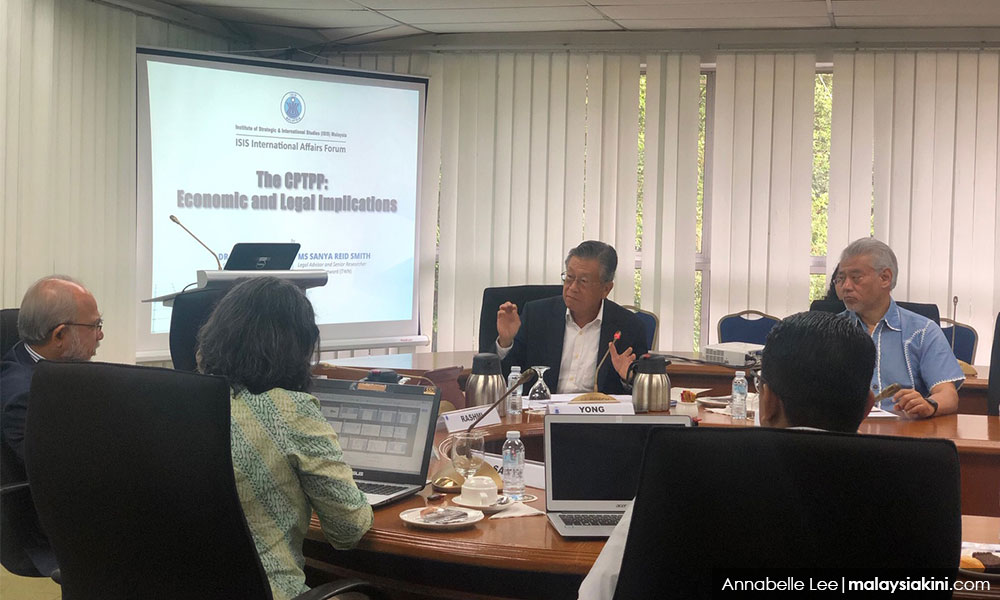
Malaysia does not stand to gain much in trade should it ratify the Comprehensive and Progressive Agreement for Trans-Pacific Partnership (CPTPP), contends a UN researcher.
At a discussion at the Institute of Strategic and International Studies (Isis) Malaysia this morning, UN Conference on Trade and Development (Unctad) senior economic affairs officer Rashmi Banga presented a study which predicted a 13 percent fall in the country’s merchandise trade balance - US$2.4 billion (RM10 billion) - should it enter into the agreement.
Total imports were estimated to rise by six percent or US$2.5 billion (RM10.42 billion) per year, mainly from Japan, Singapore and Vietnam.
Rashmi (photo, below) further analysed that more cars from Japan, along with plastic waste and scraps, would be brought into the country.
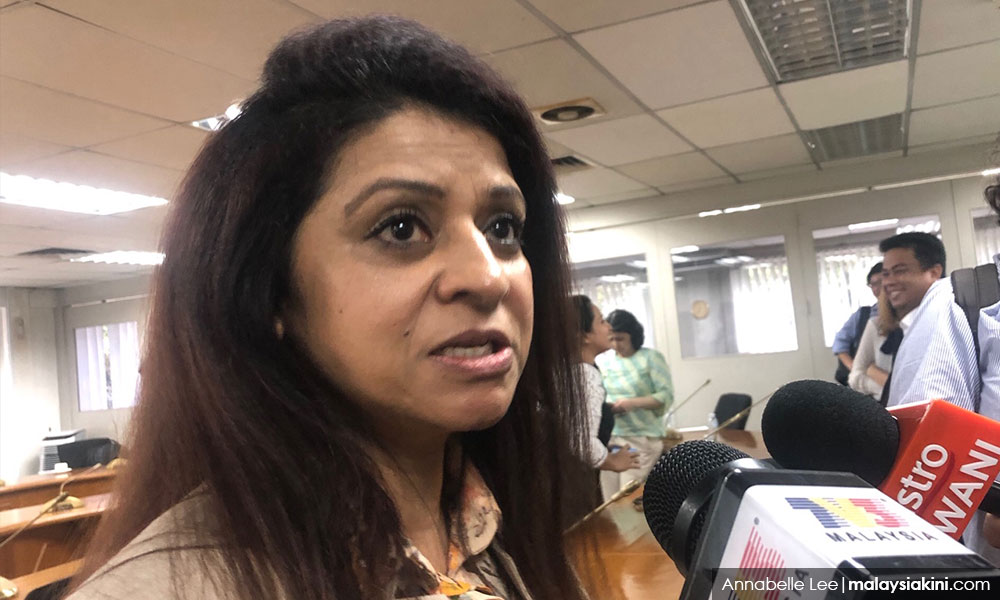
However, in terms of exports to CPTPP countries, the researcher projected that Malaysia “wouldn’t gain too much” - only 0.2 percent more than the 2016 figures.
“This is because (for) the three big countries which are part of CPTPP - Singapore, Japan and Australia - Malaysia already has free trade agreements with them.
“There are no additional gains in terms of tariff liberalisation for Malaysia,” Rashmi said when met after her presentation.
Should Malaysia not ratify the document, she predicted that trade balance would still fall but only by 0.2 percent or US$53 million (RM221 million).
The previous BN administration signed the CPTPP in March 2018 but the Pakatan Harapan government is currently mulling whether to ratify it into law.
Need new strategies, not restrictions
The CPTPP is not expected to help Malaysia attract more foreign direct investment (FDI), said international development NGO Third World Network legal adviser and senior researcher Sanya Reid Smith.
According to Smith, politics and investor rating agencies considered factors other than trade partnerships when assessing countries, even more so with the advent of the fourth industrial revolution.
“In fact, the world has moved on since the CPTPP, especially in the e-commerce chapter (of the document).
“Technology is moving so fast that some of the e-commerce chapter negotiators told me that the chapter was out of date even before the CPTPP came into force,” she told the forum.
For Rashmi, Malaysia ought to be focusing on coming up with strategic policies to make it more competitive and adaptive in the digital age rather than “binding its hands” to CPTPP’s terms.
This was especially since the CPTPP barred signatories from levying customs duties on electronic transmissions like data - a key commodity in today’s economy.
“It is very important for Malaysia to have ownership of its data, to have data centres, to process its data and to come up with more digitally intelligent products.
“This is how the trade competitiveness will change in the digital era.
“[...] But there are some provisions in the CPTPP which will do not allow (countries) to own its data and do not encourage data localisation,” she explained.
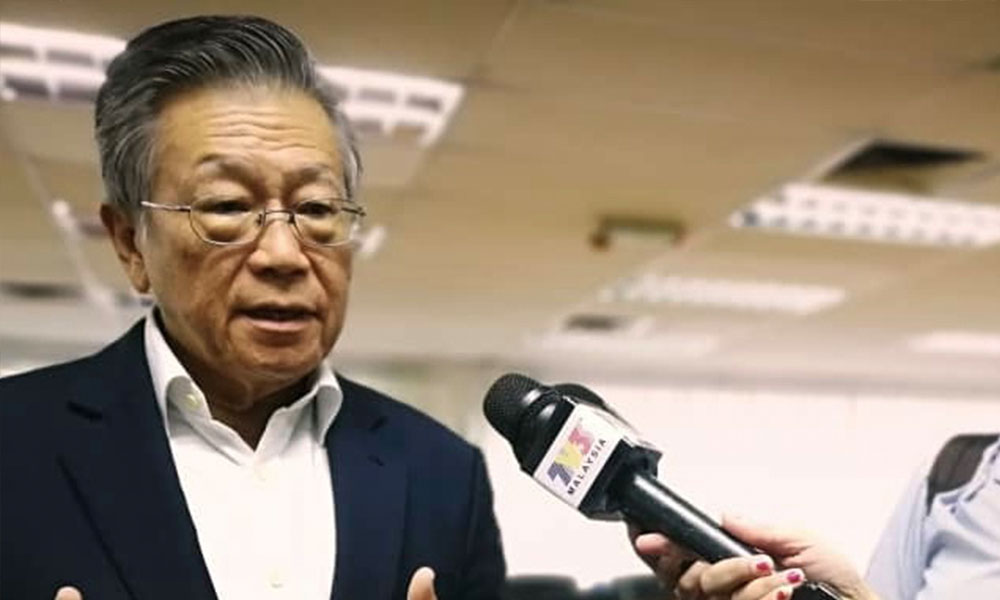
He was not perturbed about concerns over data, convinced that software was difficult to regulate or tax.
“If we continue to wait, we may lose out because our next competitor is Vietnam, (and) they are already in the CPTPP.
“Their population is 78 million and the (people) are very hardworking. Their share of external trade to GDP now exceeds that of Malaysia and they will continue to grow. If we don’t jump in (now), we will miss the train,” Yong told the media after presenting his views at the forum.
The other member countries of the agreement are Brunei, Chile, Mexico and New Zealand.
Today’s forum saw additional presentations from the government’s Economic Action Council member and Khazanah Research Institute visiting senior fellow Jomo Kwane Sundaram as well as Isis Malaysia’s Economic, Trade and Regional Integrated director Firdaos Rosli.
Among those in the audience were the prime minister’s economic adviser Muhammed Abdul Khalid as well as officials from the Economic Affairs Ministry and the International Trade and Industry Ministry. - Mkini



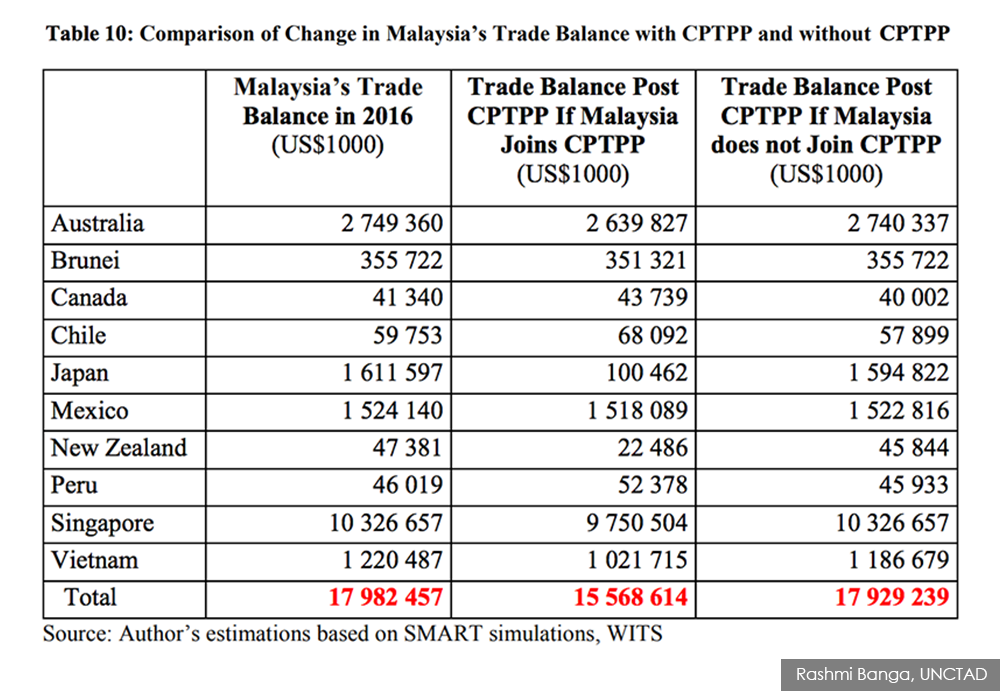
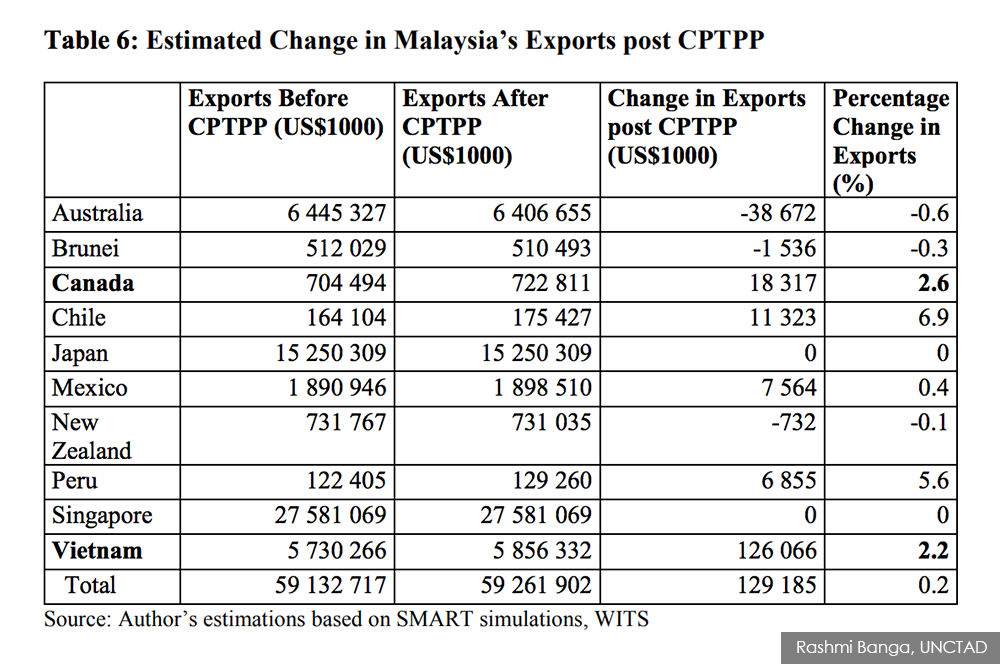
No comments:
Post a Comment
Note: Only a member of this blog may post a comment.